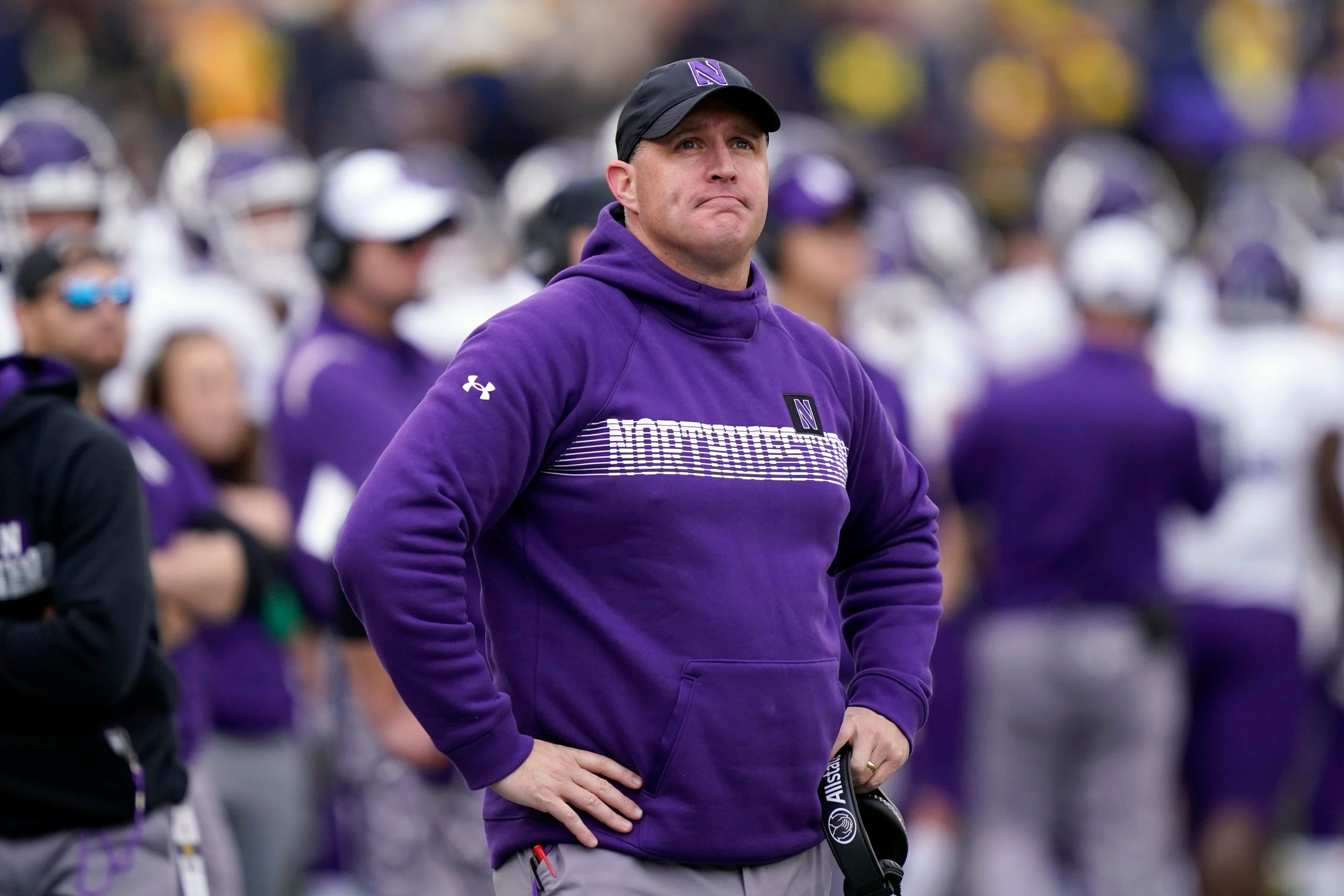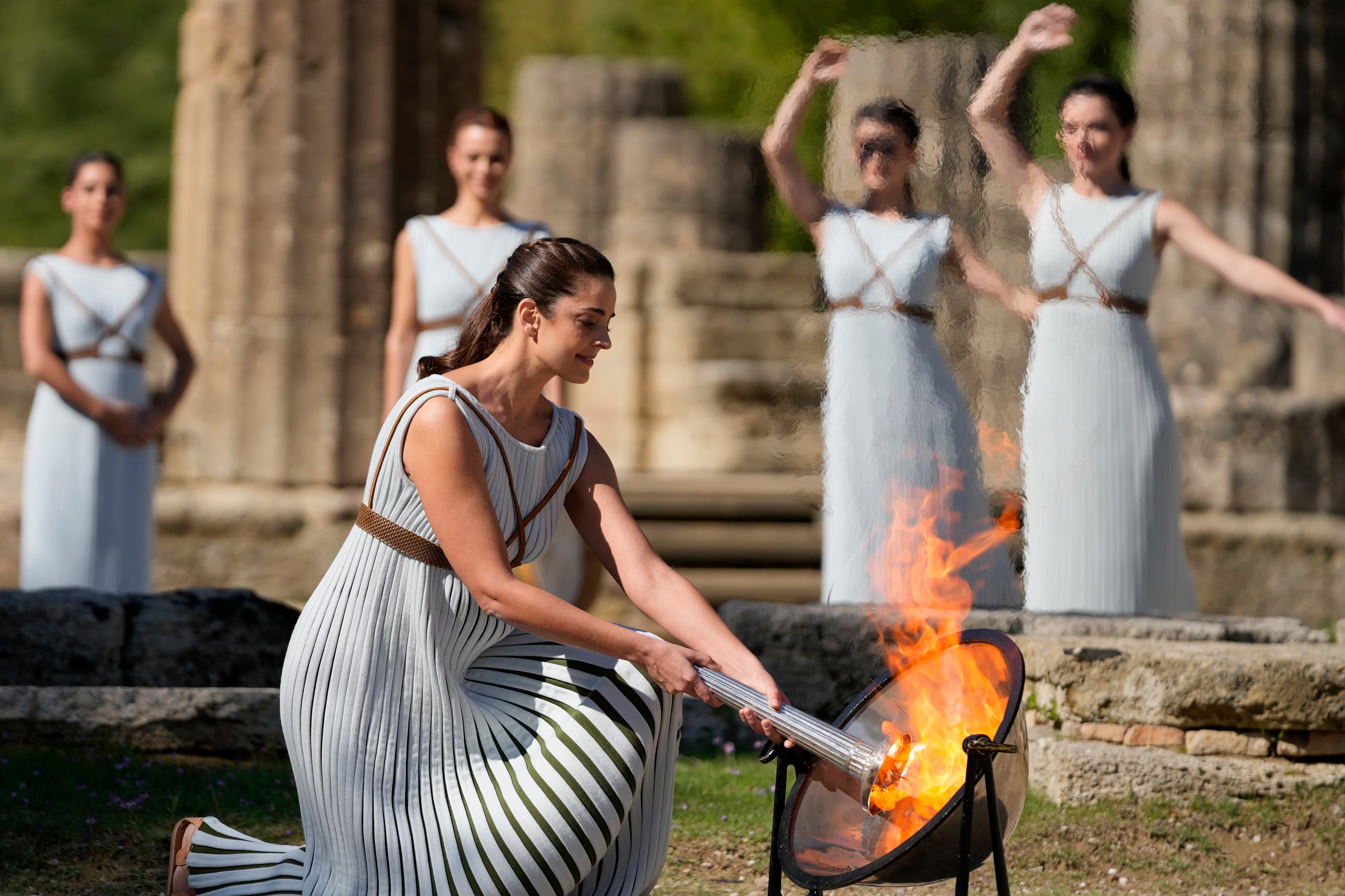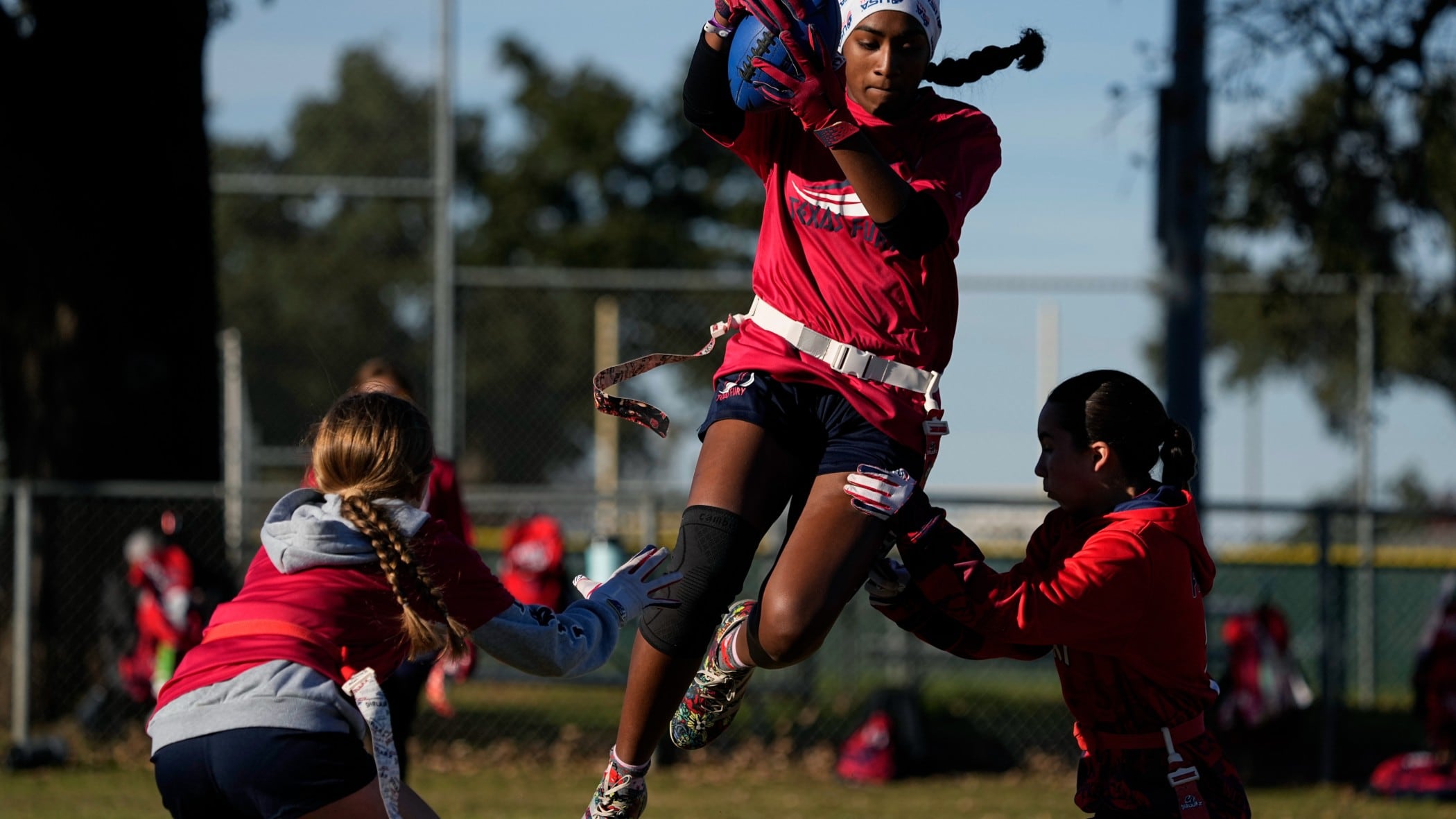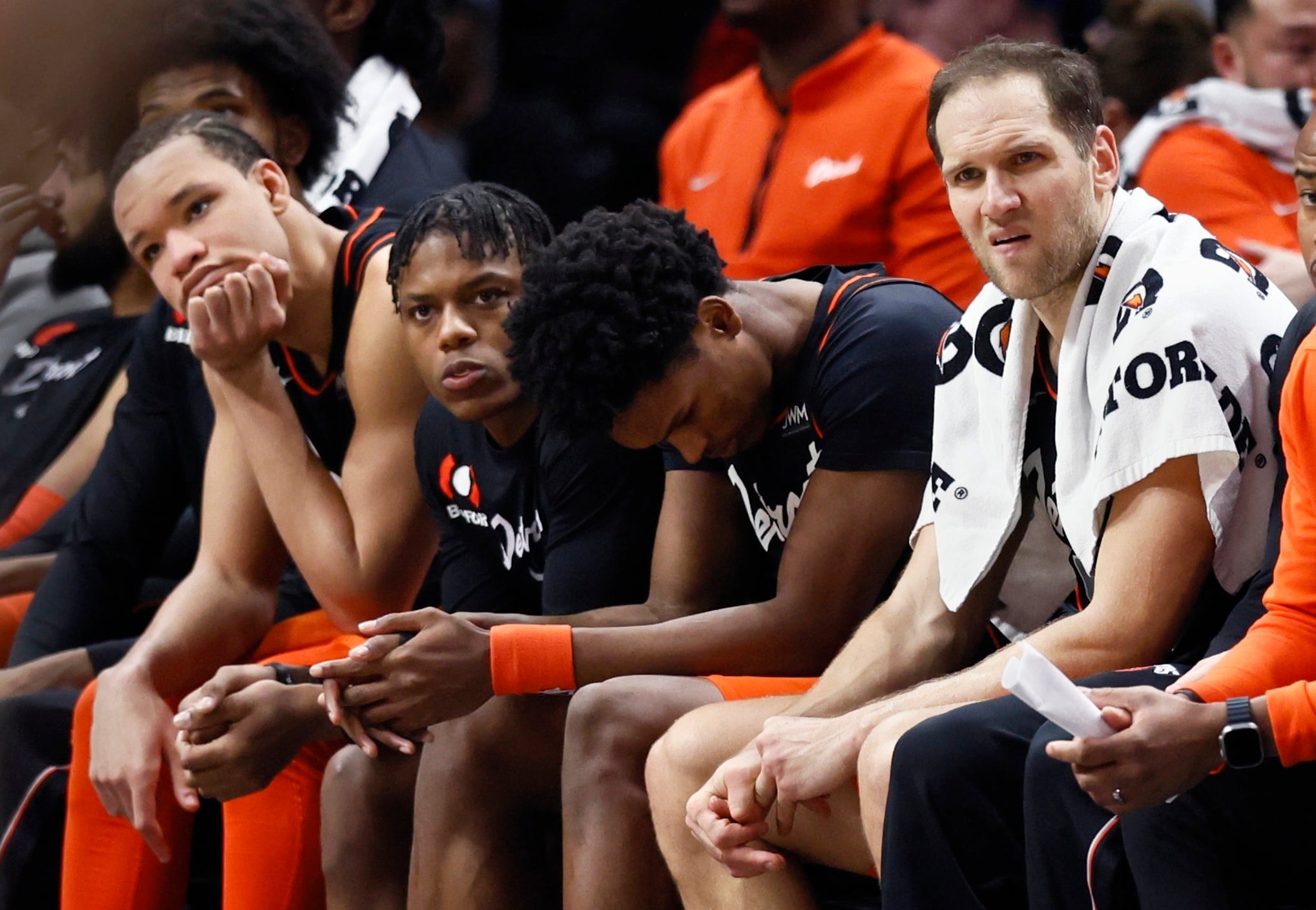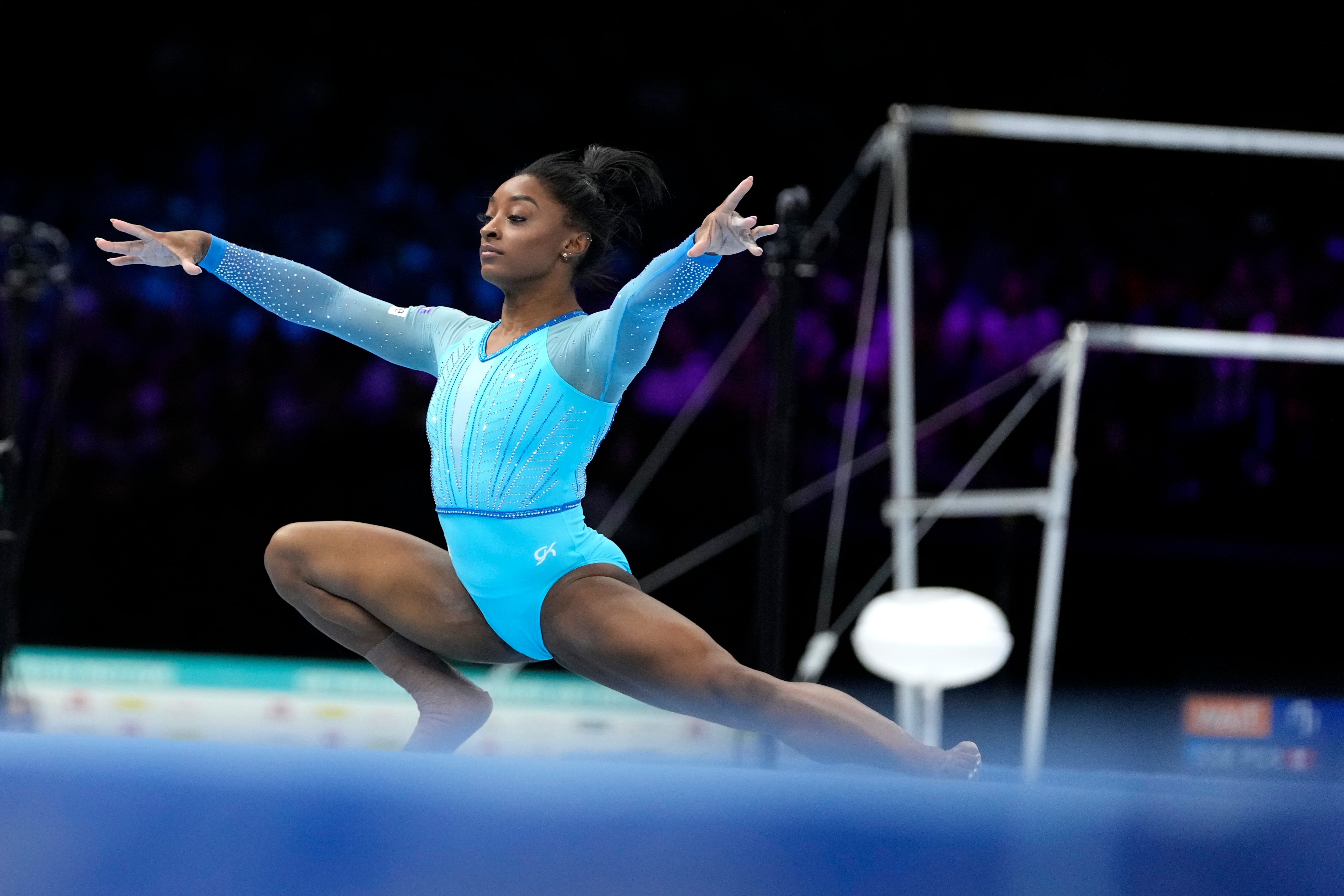By Andrew Seligman, Mike Householder and Larry Lage
The hazing scandal at Northwestern University has widened to include a volleyball player who on Monday became the first female athlete to sue the university over allegations she was retaliated against for reporting mistreatment and a new lawsuit by former Northwestern quarterback Lloyd Yates.
“This shows that it isn’t just men,” said Parker Stinar, one of her attorneys. “It isn’t just football players.”
The private school in Evanston, Illinois, is facing multiple lawsuits, including the one on behalf of Yates, which alleges hazing that includes sexual abuse.
“This is the first in a series of lawsuits,” said civil rights attorney Ben Crump, adding he plans on filing more than 30 over the coming weeks.
The scandal at the Big Ten school centers on a problem that seems to extend far beyond sports, even if it is sports that often gets the headlines. While major college sports programs have become multimillion-dollar, ritualistic hazing appears to remain a problematic tradition within them.
Speaking at a Monday news conference, Crump said Yates’ case is the first with a named plaintiff and includes comments from other named players.
“It’s a real big deal when these young people have the courage to take a stand and refuse to be victims anymore, refuse to have their voices silenced,” Crump said.
Crump called this college sports’ “Me Too” moment.
Fitzgerald was fired after a university investigation found allegations of hazing by 11 current or former players, including “forced participation, nudity and sexualized acts of a degrading nature,” school President Michael Schill said. One previous lawsuit accuses Fitzgerald of enabling a culture of racism, including forcing players of color to cut their hair and behave differently to be more in line with the “Wildcat Way.”
The volleyball player, identified in Monday's lawsuit as Jane Doe, says she was physically harmed to the point of requiring medical attention during a hazing incident in early 2021.
According to the lawsuit, Jane Doe contracted COVID-19 in February of that year, despite following the team’s COVID guidelines. Despite this, she says, Northwestern volleyball coach Shane Davis and an assistant coach informed her she would need to undergo a “punishment” for violating the guidelines. A day later, on March 2, 2021, the coaches permitted the volleyball team’s captains to pick the punishment: She was forced to run “suicides” in the gym while diving to the floor each time she reached a line on the court. As she did this, the suit says, volleyball coaching staff, team members and trainers watched.
Campus police were made aware of the incident, as was the athletic department, the lawsuit says. Jane Doe says she was isolated from the team and Davis forced her to write an apology letter to trainers. The lawsuit also says the player met with athletic director Derrick Gragg to discuss the culture of the volleyball program but he “did nothing in response” to her concerns.
Davis did not immediately respond Monday morning to messages seeking comment. Messages also were left with Gragg and a spokesperson for the athletic department.
The school announced in December 2021 that it had signed Davis to a multi-year contract extension. A year later, in December 2022, the player medically retired from the sport.
Northwestern spokesperson Jon Yates confirmed the unnamed student made a hazing allegation in March, 2021. Jon Yates said after suspending the coaching staff during an investiation, which confirmed hazing took place, two volleyball games were canceled and mandatory anti-hazing training was implemented.
“Although this incident predated President Schill’s and Athletic Director Gragg’s tenure at the University, each is taking it seriously,” Jon Yates said. “Dr. Gragg met with the student at her request last year, and as President Schill wrote in a message to the Northwestern community, the University is working to ensure we have in place appropriate accountability for our athletic department.”
The lawsuit was submitted in Cook County, Illinois, by the Chicago-based Salvi Law Firm and names as defendants Davis and Gragg as well as the university, its current and former presidents and the board of trustees. The suit also names Atlantic Coast Conference Commissioner James J. Phillips, who was Northwestern’s athletic director until 2021. Phillips, who has been named as a defendant in two other lawsuits, has said he never “condoned or tolerated inappropriate conduct” against athletes while he was Northwestern’s athletics director.
Crump planned to announce another lawsuit against Northwestern over hazing allegations in its athletic programs, with the latest suit touted as containing “damning new details” of sexual hazing and abuse in its football program.
Fitzgerald, who led Northwestern for 17 seasons and was a star linebacker for the Wildcats, has maintained he had no knowledge of hazing. Fitzgerald said after being fired that he was working with his agent, Bryan Harlan and his lawyer, Dan Webb, to “protect my rights in accordance with the law.”
The hazing allegations have broadened beyond the school's football program as attorneys said last week that male and female athletes reported misconduct within its baseball and softball programs. They also suggested that sexual abuse and racial discrimination within the football program was so rampant that coaches knew it was happening.
Northwestern has been added to a long list of American universities to face a scandal in athletics and may eventually join the trend of making large payouts following allegations of sexual abuse.
Householder reported from Detroit, and Lage reported from Allen Park, Michigan.
